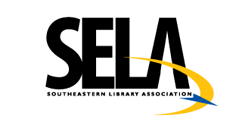Abstract
Since its creation in 1860, the U.S. Government Printing Office (GPO) has supplied the nation’s Congress, federal agencies, and citizenry with the information they need to carry out their daily activities (Morehead 1999, 15). Through its Superintendent of Documents programs, the GPO produces and disseminates the largest volume of U.S. government publications in the world (U.S. Government Printing Office 2003).
The most widely publicized of the Superintendent of Documents programs is the Federal Depository Library Program (FDLP). Authorized by Title 44 of the United States Code, the FDLP provides the American public with information resources from the legislative, executive and judicial branches of the federal government. Through this program, nearly 1,300 libraries in the 50 states, the District of Columbia, and the territories, serve as federal depositories. The GPO distributes its various publications to these participating libraries at no cost. The libraries, in turn, maintain these publications as part of their collections and provide patrons with free and unrestricted access to them. In this way, citizens throughout the country can obtain information from the federal government in a local setting with assistance from library personnel. Furthermore, they can find information on a variety of subjects, such as economics, health and nutrition, law, education, technology, and social programs (U.S. GPO 2003).
While some argue that the growing abundance of U.S. government information on the Internet creates competition for depositories, this same phenomenon actually adds to the services depository libraries provide. These services include free, unrestricted access to federal government information in both traditional and electronic formats and in a wide range of subjects; specialized instruction in locating this information from documents librarians and other depository staff; and assistance with using computer hardware and software to find this material (U.S. GPO 2002). These services, especially those related to online resources, are vital to ensuring public access to U.S. government information, given the chaotic Internet environment. By increasing public awareness of the benefits of continuing to use depositories to obtain federal government information, these libraries can improve public access to this information.
This article discusses how librarians and other depository staff can develop programs to promote their services and resources. It suggests various promotional activities that depository library personnel can implement within their institutions and throughout the surrounding communities, using examples from the Mississippi State University (MSU) Libraries’ Government Documents Department where applicable. The article gives particular attention to government documents instruction and depository web pages.
Publication Date
Spring 2006
